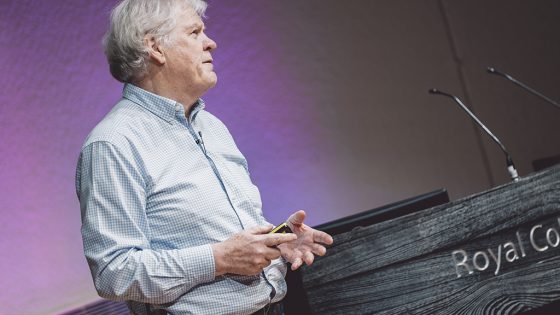The government’s former chief construction adviser has said he was “surprised” the final Grenfell Tower Inquiry report did not investigate construction product toxicity.
Paul Morrell pointed out that the inquiry’s expert toxicologist was unable to separate the impact on victims of carbon monoxide from smoke and hydrogen cyanide from construction products.
Speaking to Construction News at the NBS Construction Leaders’ Summit on Tuesday (24 September), he added: “I think it’s surprising to say that everybody [in Grenfell Tower] died of smoke, some of it had hydrogen cyanide, and to not say that we should at least look at the implications of toxicity in products.
“We are making products more toxic to make them more fire-resistant by adding chemicals to them.”
In his 2023 joint review into construction products with lawyer Anneliese Day, Morrell raised concerns about a lack of a general requirement for testing product toxicity in the event of fire. The review said there was a “widely held view” that manufacturers add potentially toxic chemicals to products to improve their fire performance.
Construction product toxicity was one of two “surprising” omissions, according to Morrell. The other was that he expected more about how the industry should learn lessons from disasters, an issue he said was separate from the regulator. Both lines of questioning “may well have been beyond [the inquiry’s] terms of reference”, he added.
During his keynote speech, Morrell also raised concerns about the safety risks of “under-regulated, under-supervised” offsite construction.
“I would place a very heavy bet on a future disaster being around offsite manufacture,” he said.
He later told CN he was worried that products “loaded with adhesive” were being manufactured and installed with relatively little supervision compared to traditional construction methods.
He said: “I’m not sure if we’re regulating [modules] at all. Is it a product or not?
“I don’t know if the regulator for offsite fabrication before it gets to site is the OPSS [Office for Product Safety and Standards] or the BSR [Building Safety Regulator].”
In their independent review, Morrell and Day recommended that the government and industry address the special fire risks of modern methods of construction, including combustible materials within structural frames and voids between modules.
Morrell told CN the industry has a “fundamental obligation” to make offsite safe and analyse the risk of each product before installation.

